ARS ELECTRONICA ARCHIVE – AI LAB
Das European ARTificial Intelligence Lab (AI Lab) ist ein Nachfolgeprojekt des European Digital Art and Science Network, einer kreativen Zusammenarbeit zwischen wissenschaftlichen Institutionen, Ars Electronica und Kulturpartnern in ganz Europa, die Wissenschaft und digitale Kunst vereint. Das European ARTificial Intelligence Lab knüpft daran an und thematisiert Visionen, Erwartungen und Befürchtungen, die wir mit künstlicher Intelligenz verbinden. Das Konsortium besteht aus 13 Kulturinstitutionen aus Europa mit Ars Electronica als Koordinator. Dieses Online Archiv bietet eine Übersicht über alle Aktivitäten, die während der Laufzeit des Projekts von 2018 bis 2021 durchgeführt wurden. Zudem liefert es Informationen zum Netzwerk an sich, zu den Residency Künstlern und Jurys sowie zu den beteiligten Projektpartnern. Das AI Lab wird kofinanziert durch das EU-Programm „Creative Europe (2014-2020)“ sowie durch das Bundesministerium für Kunst, Kultur, öffentlichen Dienst und Sport.
European Platform for Digital Humanism Conference by Ars Electronica
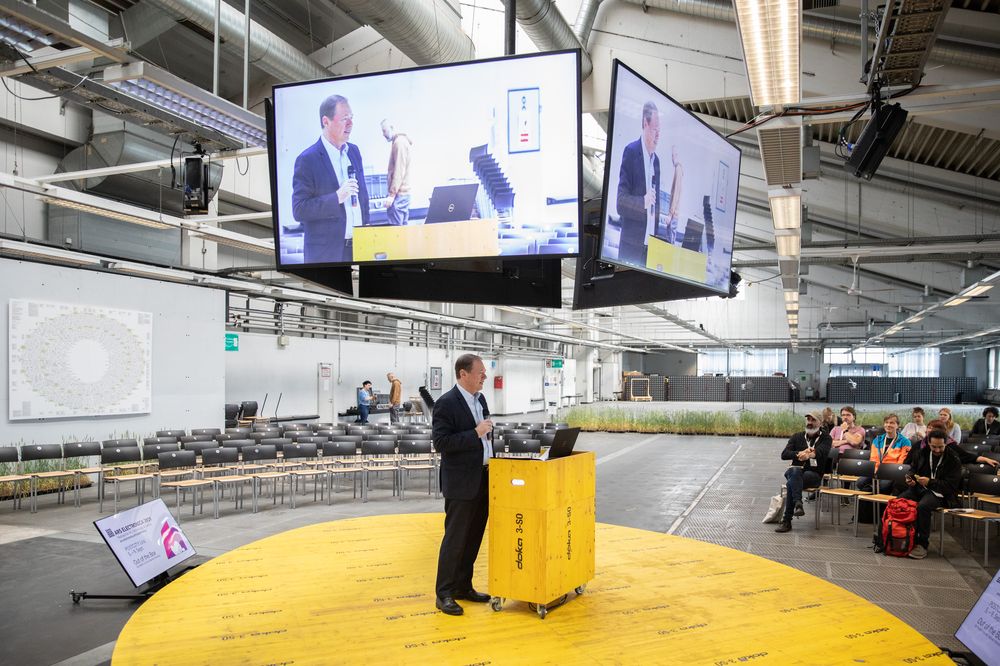
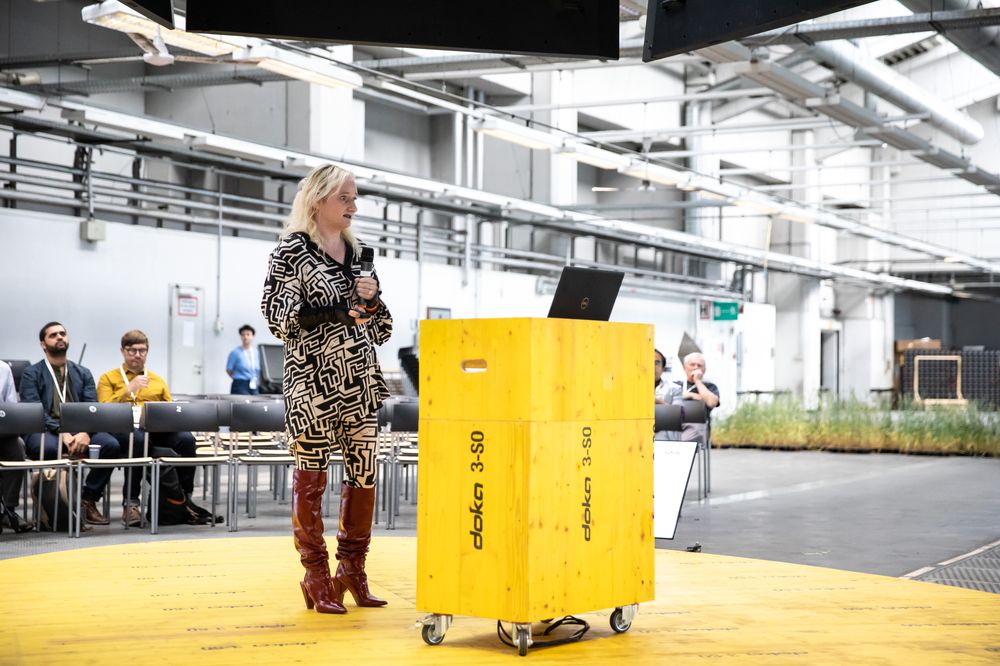
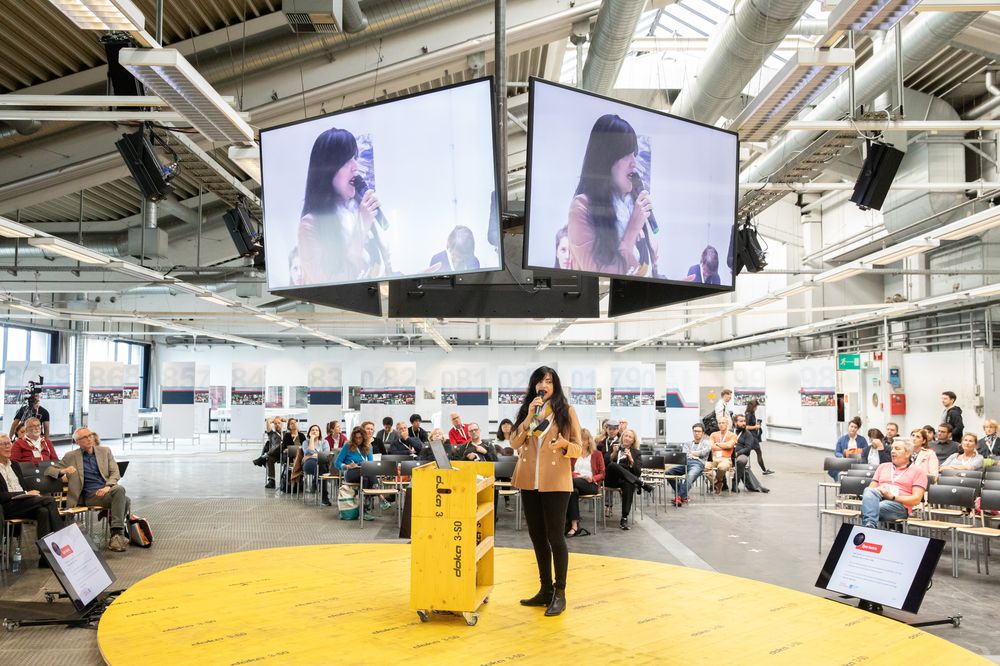
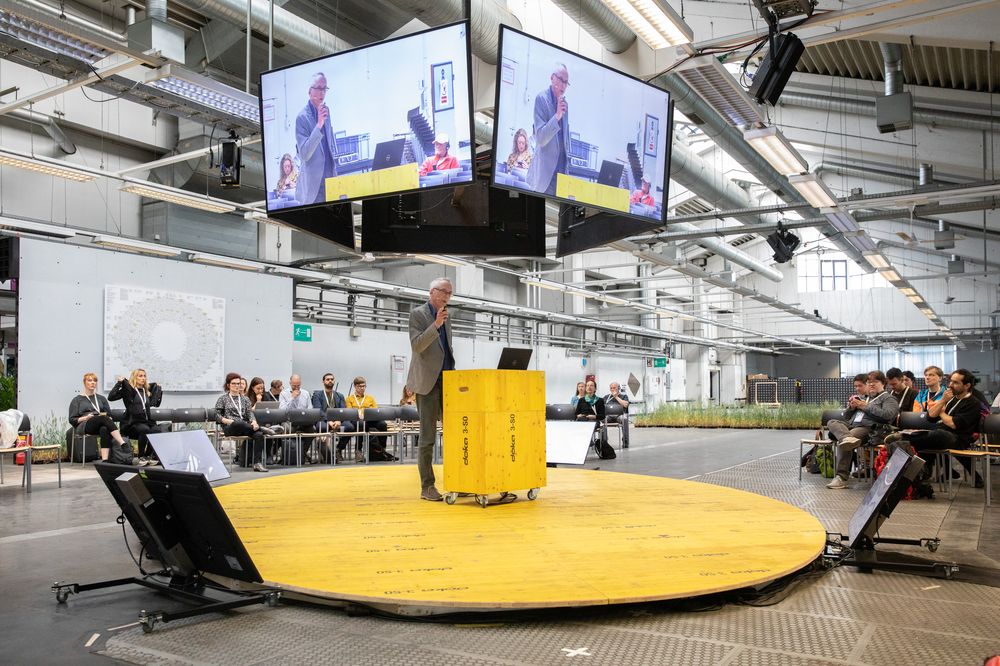
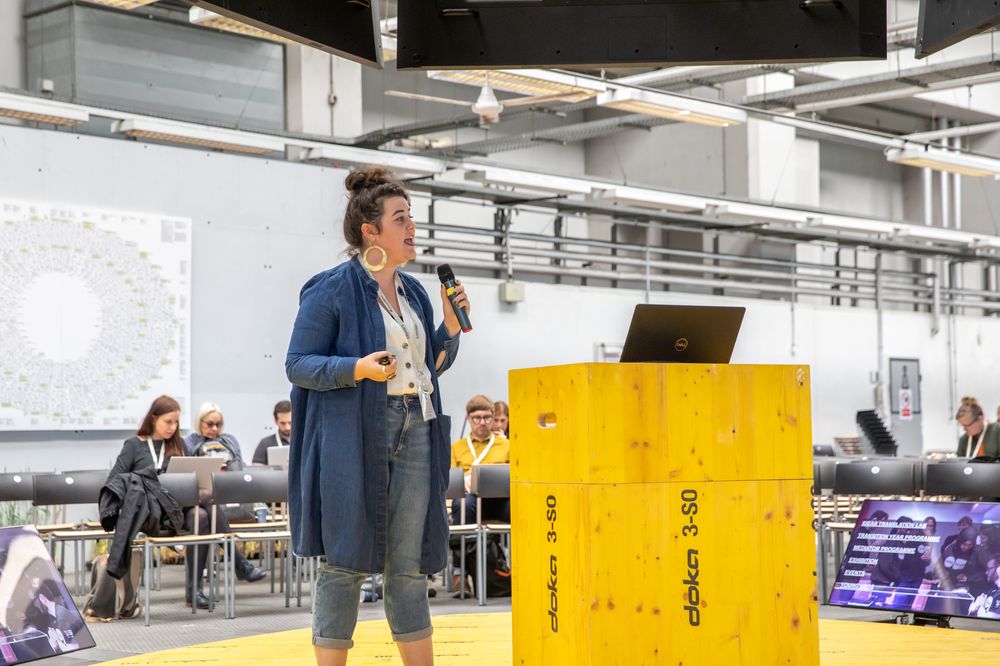
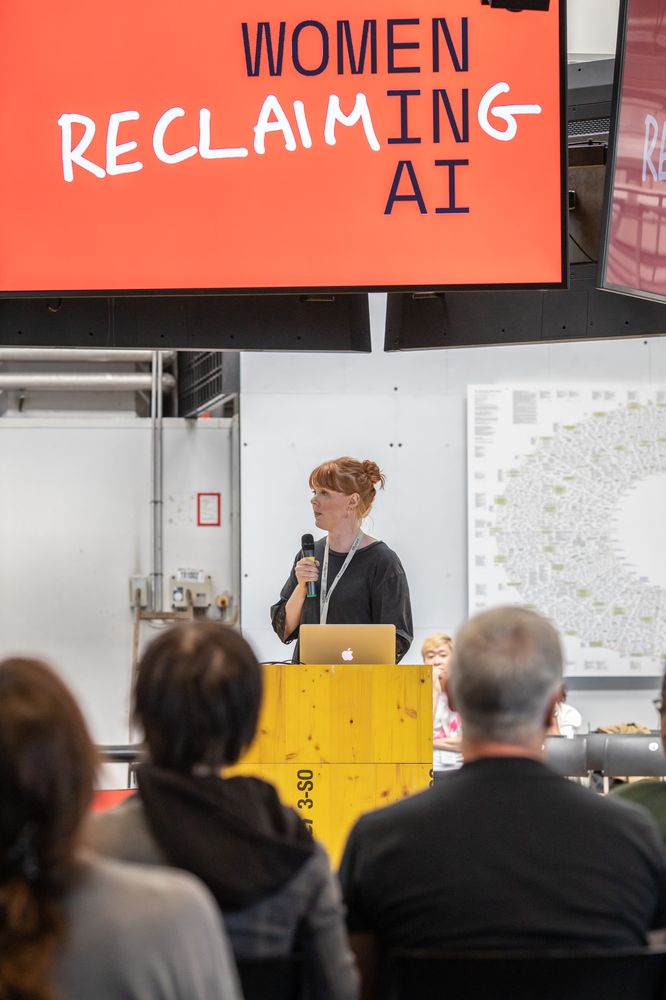
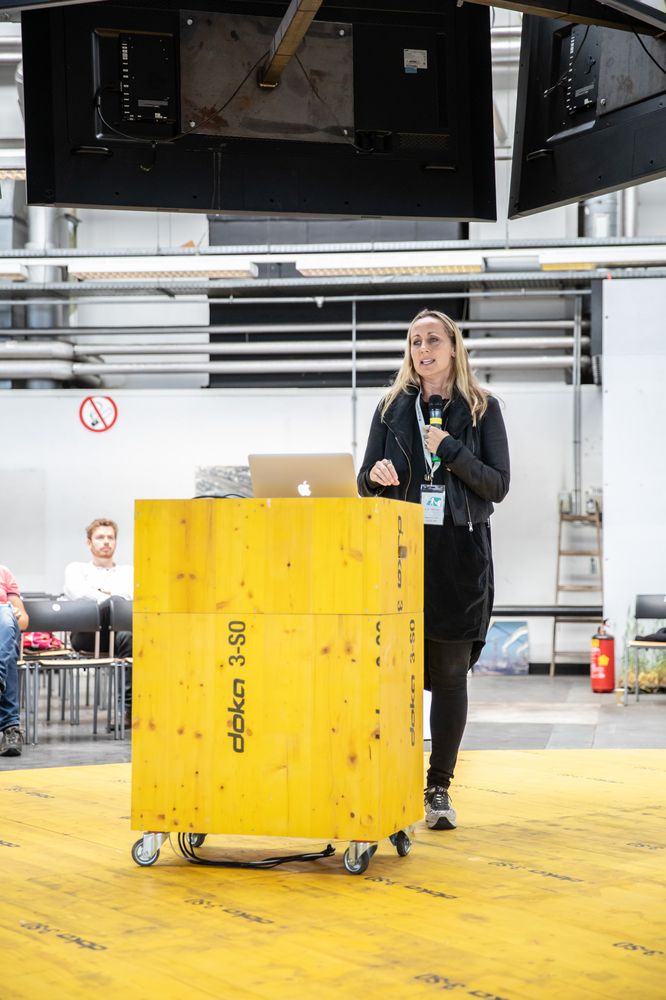
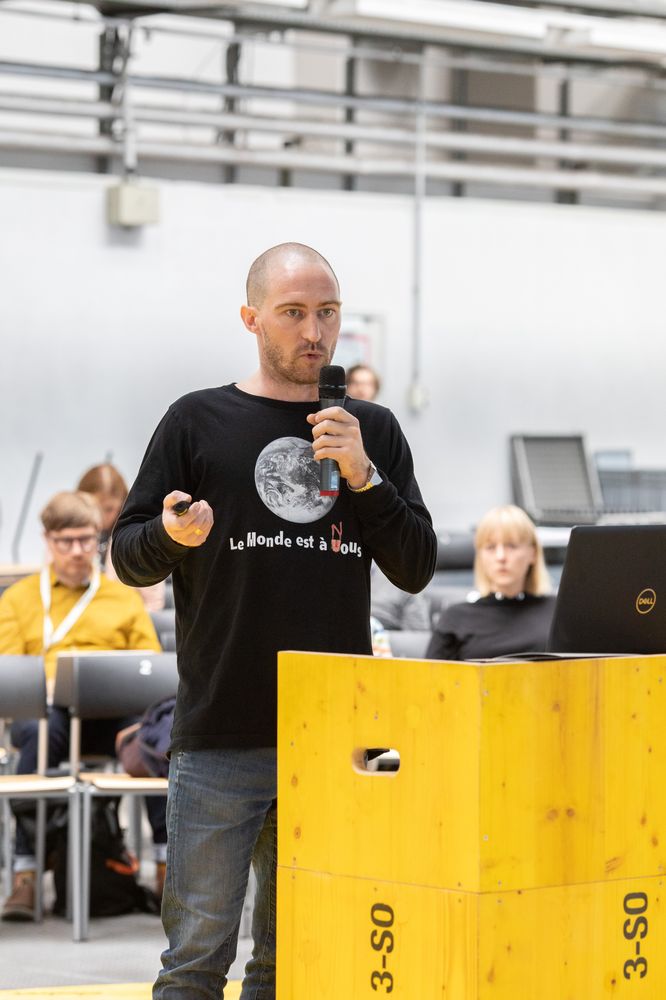
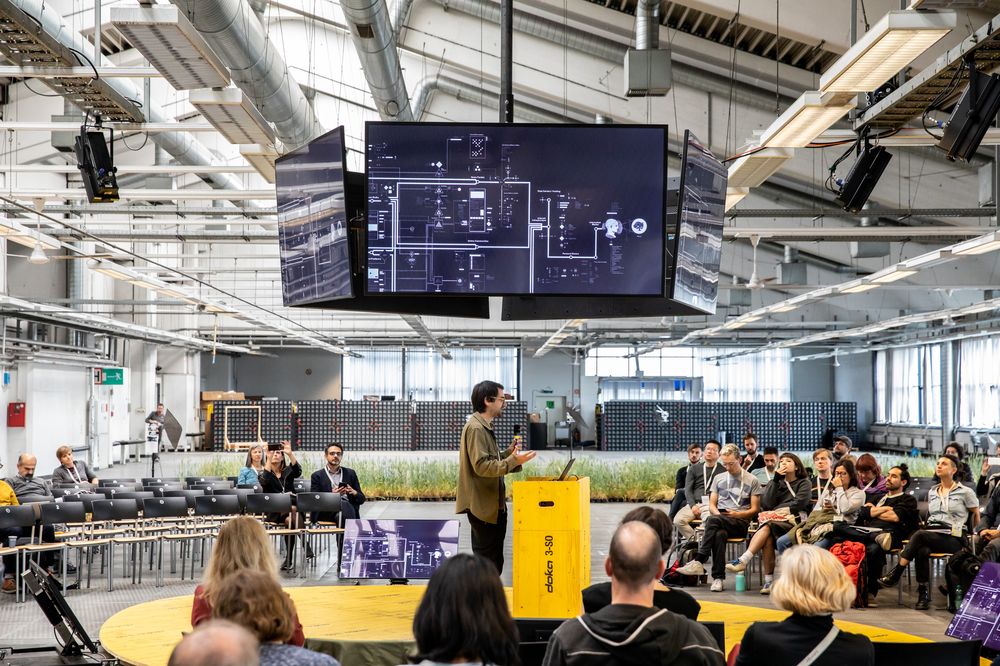
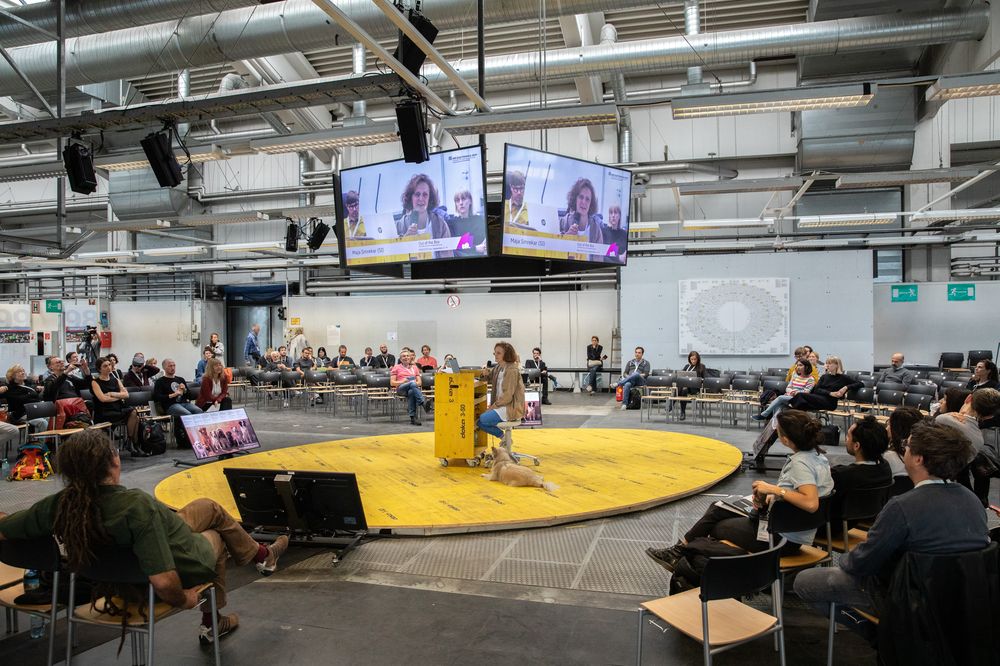
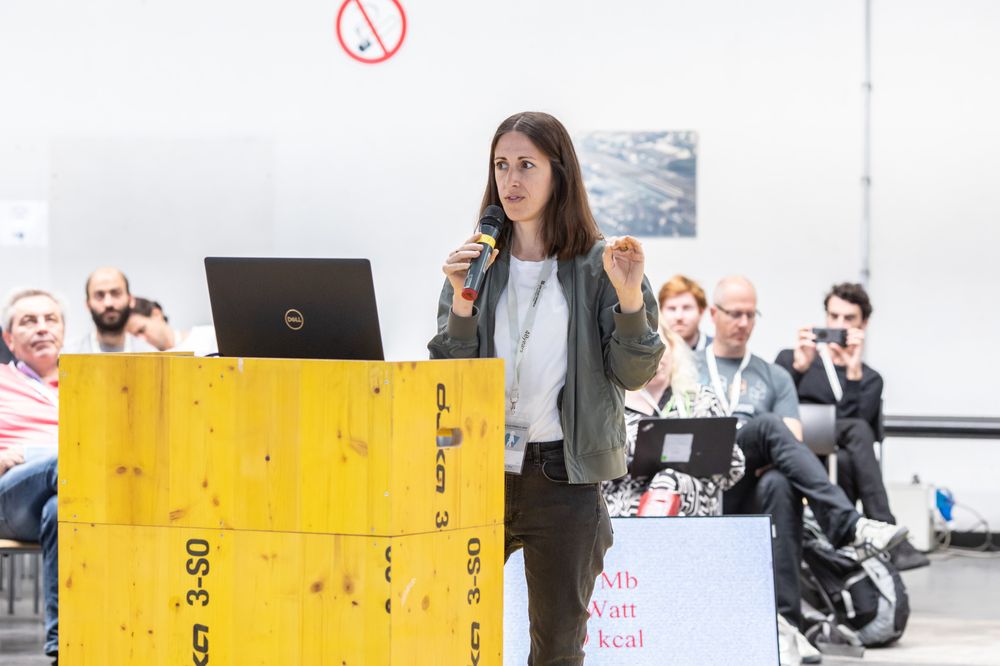
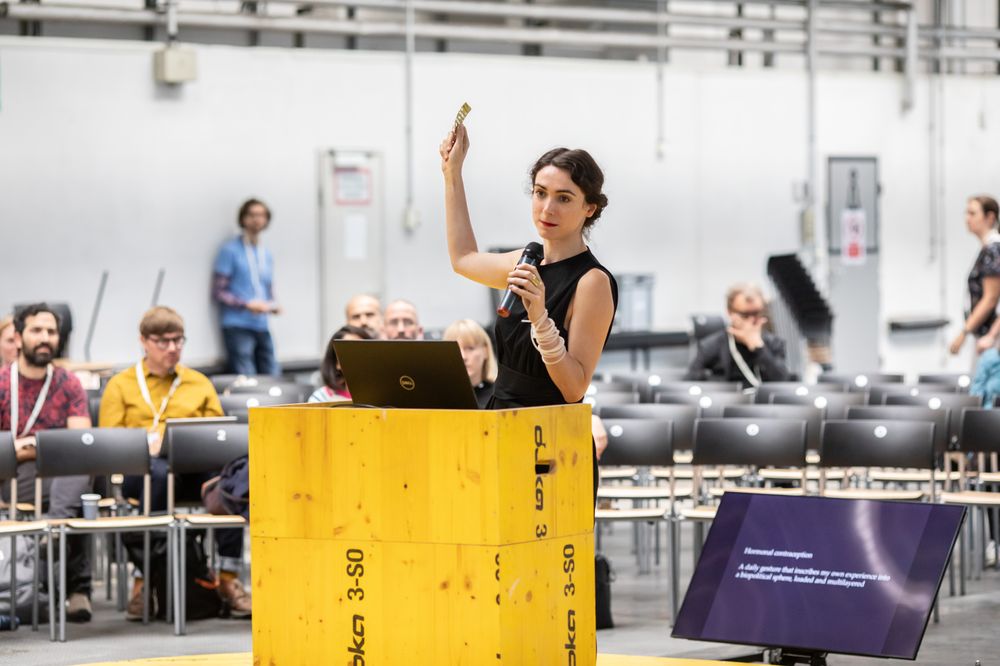
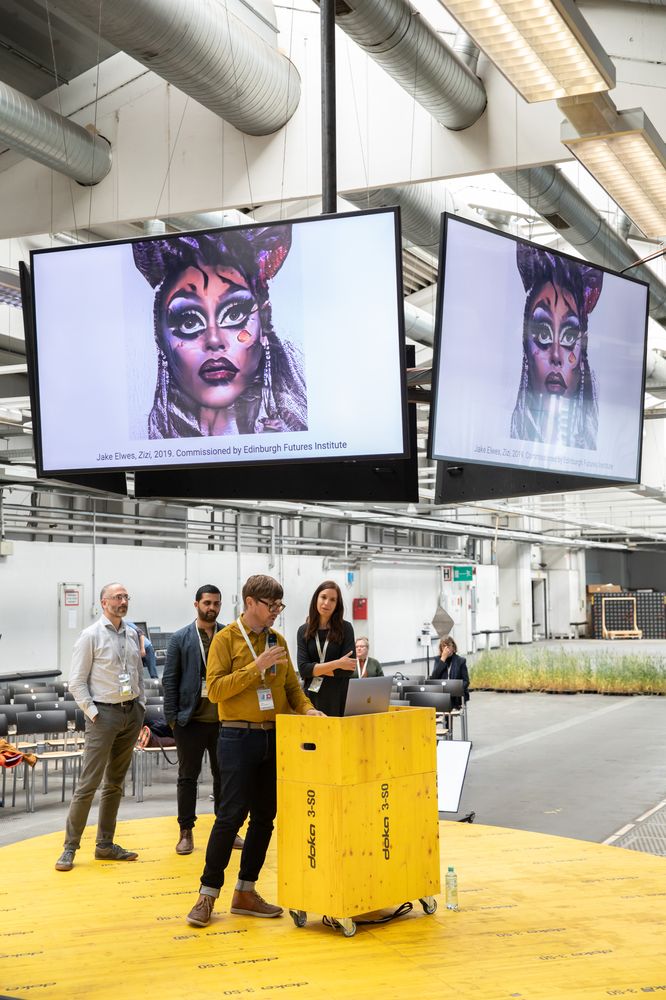
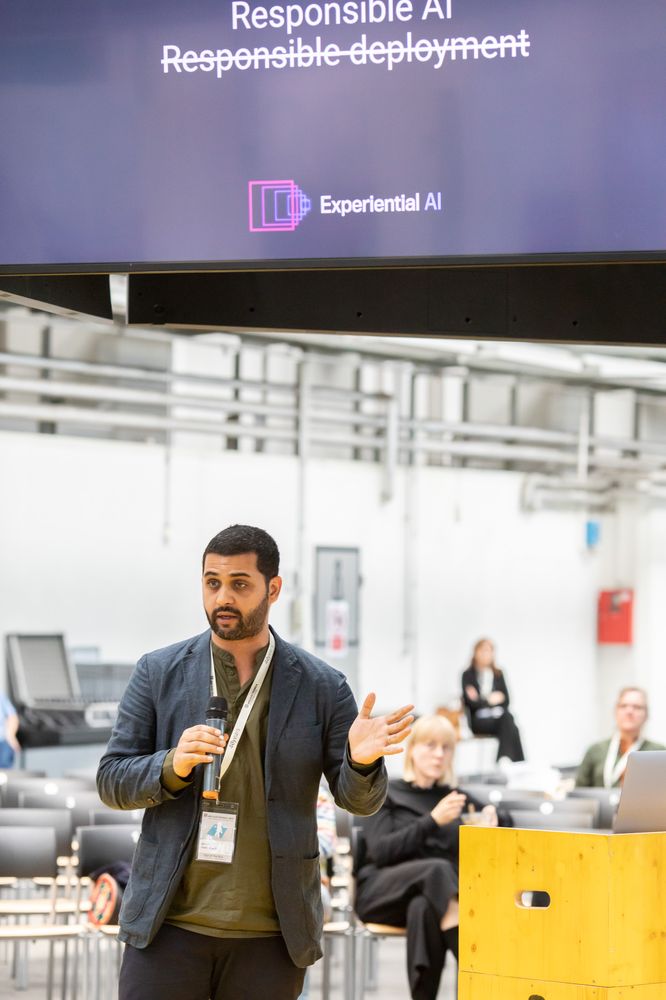
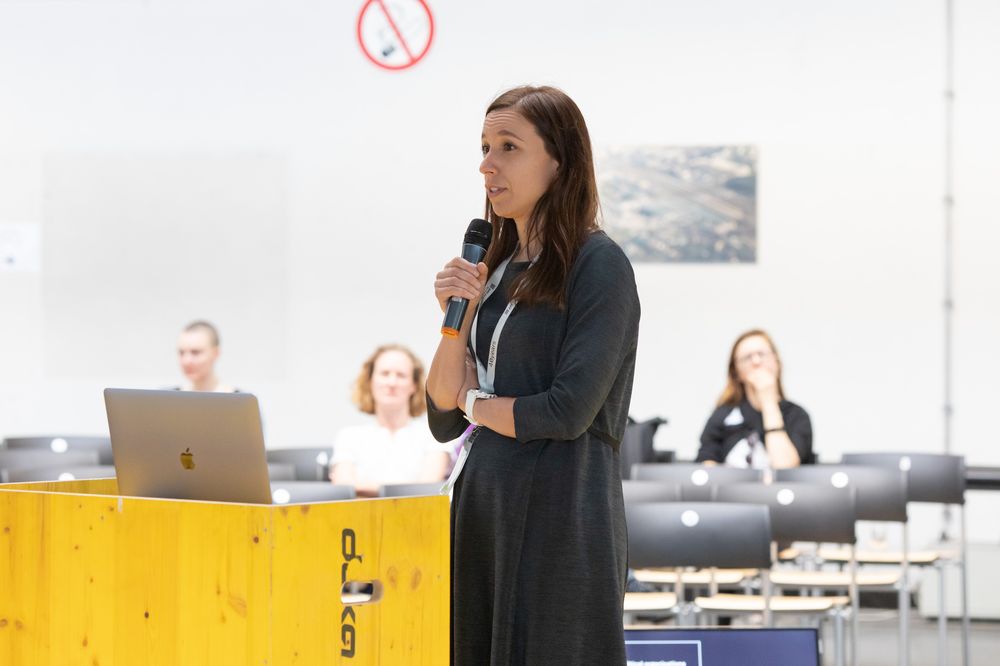
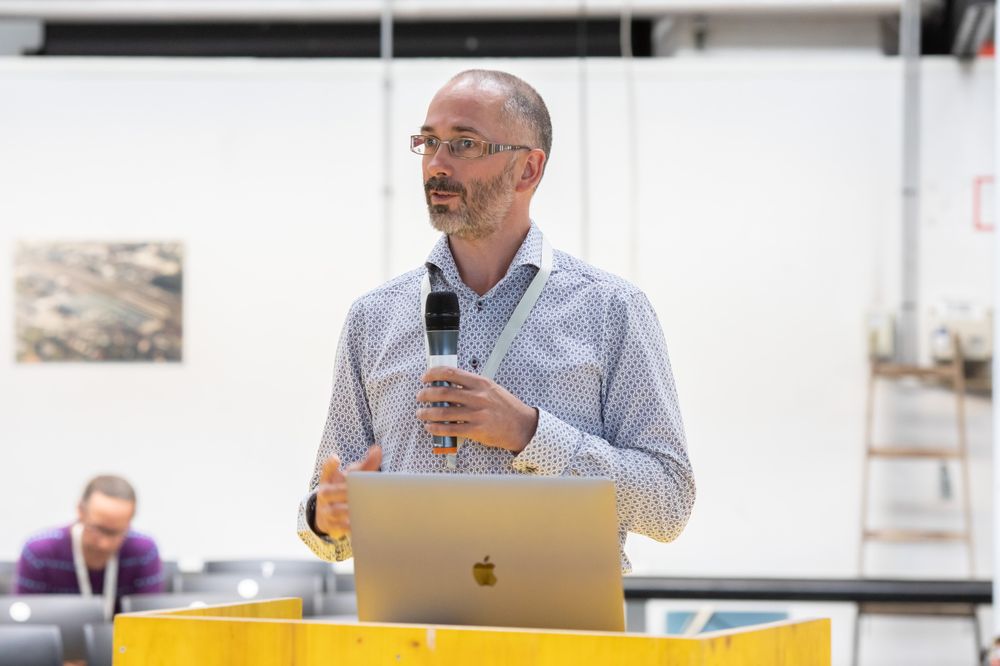
10:00 – 11:00 Bias Research
Introduction: Roberto Viola (IT)
Host: Derrick de Kerckhove (CA)
Eveline Wandl-Vogt (AT), Clara Blume (AT), Andreas Broeckmann (DE)
11:00 – 13:30 Inclusive AI Applied
Host: Ina Zwerger (AT)
Birgitte Aga (NO) & Coral Manton (UK), Max Haarich (DE), Vladan Joler (RS), Maja Smrekar (SI), Joana Moll (ES), Aisling Murray (IE), Margherita Pevere (IT/DE)
13:30 – 15:00 Experiential AI: Entanglements – Fair, Moral and Transparent AI
Presented by the Experiential AI group of the Edinburgh Futures Institute
Drew Hemment (UK), Vaishak Belle (IN), Larissa Pschetz (DE), Dave Murray-Rust (UK)
https://www.youtube.com/watch?v=IWkw6FJ_13I (EN)
https://www.youtube.com/watch?v=bbqv3hgpWcM (DE)
Conference Website: https://ars.electronica.art/outofthebox/en/digital-humanism-conf/
A conference by the European ARTificial Intelligence Lab
Conference
POSTCITY, Linz, AT
08.09.2019
Roberto Viola (IT)
Eveline Wandl-Vogt (AT)
Clara Blume (AT/US)
Clara Blume, Ph.D. is Deputy Director and Head of Art & Science at Open Austria, the Austrian Consulate and Innovation Hub in Silicon Valley. In close collaboration with academic institutions, museums, and other art-centered organizations, Clara creates and supports innovative projects at the intersection of art and technology. For over ten years, Clara worked as a professional musician and critically-acclaimed songwriter in Europe. She is the founder of Vienna’s The Singer Songwriter Circus – a touring live music show promoting international newcomers. Clara studied Fine Arts at the Academy of Arts in Madrid, she completed her M.A. in Comparative Literature and received her Ph.D. in History and Romance Studies from the University of Vienna in 2017.
Andreas Broeckmann (DE)
Andreas Broeckmann is an art historian and curator who lives in Berlin. Currently Visiting Professor for Art History and Media Theory at the Academy of Fine Arts, Leipzig (HGB – Hochschule für Grafik und Buchkunst) and engaged in the research and documentation project, Les Immateriaux Research. From 2011-2016 he directed the Leuphana Arts Program of Leuphana University Lüneburg. He was the Artistic Director of transmediale and ISEA2010 RUHR, Founding Director of the Dortmunder U – Centre for Art and Creativity, and has curated exhibitions and festivals in major European venues. He holds a PhD in Art History from the University of East Anglia, Norwich/UK, and is a private lecturer at Leuphana University. Broeckmann lectures internationally about the history of modern art, media theory, machine aesthetics, and digital culture. He is the author of “Machine Art in the Twentieth Century” (MIT-Press, 2016).
----
INCLUSIVE AI APPLIED
Birgitte Aga (NO) & Coral Manton (UK)
The work of artist-technologist duo Birgitte Aga and Coral Manton manifests as collaborative workshops, events and installations aimed at(re)claiming conversational Artificial Intelligence (AI) systems as a medium for protest. It critiques the commercial pursuit of humanising AI technologies and challenges the bias, stereotyping and pervasive influence embedded within. By activating the public, Aga and Manton re-write and re-imagine the cultural myths of AI and robotics, creating alternative technology-mediated futures.
Their most recent work is Women Reclaiming Ai (2019), an expanding activist art-work, presented as a feminist AI voice assistant, programmed through workshops by a growing community of self-identifying women, and The Infinite Guide (2018), a speculative art work and research project, powered by a conversational AI, (LSTM Recurrent Neural Net), trained on a biased and non-diverse data-set.
https://birgitteaga.com/
https://coralmanton.com/
Max Haarich (DE)
H.E. Max Haarich is a consultant on arts and technology with a focus on ethics in Artificial Intelligence (AI). He studied Communication Science at RWTH Aachen and worked on the topics of Innovation and Strong AI in academia and industry. In 2017 he became ambassador of Užupis. His Munich Embassy builds bridges between arts and technology to make innovations more inspired, accessible, and ethical.
http://facebook.com/UZMUC
Vladan Joler (RS)
Vladan Joler is the Director of SHARE Foundation and professor at the New Media department of the University of Novi Sad. He is leading SHARE Lab, a research and data investigation lab for exploring different technical and social aspects of algorithmic transparency, digital labour exploitation, invisible infrastructures, black boxes, and many other contemporary phenomena on the intersection between technology and society.
Maja Smrekar (SI)
Maja Smrekar’s (SI) work has been established in the international art and science milieu, based on interdisciplinary research of the developments and application of ideological structures in contemporary society. Grounded in sculpture, Smrekar’s practice has allowed her to lead strong collaborations in developing cross-conceptual productions that include installations, performances, site specific art, drawings, videos, sound, workshops, lectures, talks and texts. Among other, she received the Prix Ars Electronica – Golden Nica 2017 Award in Hybrid Art. Smrekar lives and works between Ljubljana (SI) and Berlin (DE).
Joana Moll (ES)
She is a Barcelona based artist and researcher. Her work critically explores the way post-capitalist narratives affect the alphabetization of machines, humans and ecosystems. Her main research topics include Internet materiality, surveillance, social profiling and interfaces. She has presented her work in different museums, universities, festivals and publications around the world. She is the co-founder of the Critical Interface Politics Research Group at HANGAR and currently a visiting lecturer at Universität Potsdam.
https://www.janavirgin.com/
Aisling Murray (IE)
Graduate, NUI Galway and Trinity College Dublin. Curator and Creative Producer with 8 years’ experience covering exhibitions, festivals, literature, spoken word, theatre and dance. Board member of A4 Sounds, Dublin. Manages exhibitions from concept to full realisation in Ireland and internationally for Science Gallery Dublin including commissioning and forging partnerships with peer organisations such as The National Concert Hall and Dublin Dance Festival.
Margherita Pevere (IT/DE)
Merging biolab practice with visceral aesthetics, Pevere’s installations and performances are chimeras which intertwine poetics and controversy, critique and desire. Most recent awards include the Digital Art Award of Romaeuropa Festival (with Marco Donnarumma) and the Honorable Mention at the Share Prize. She is PhD Candidate in Artistic Research at Aalto University, Helsinki (FI), supported by Kone Foundation.
http://www.margheritapevere.com
----
EXPERIENTIAL AI
Presented by the Experiential AI group of the Edinburgh Futures Institute:
Drew Hemment (UK)
Vaishak Belle (IN)
Larissa Pschetz (DE)
Dave Murray-Rust (UK)


